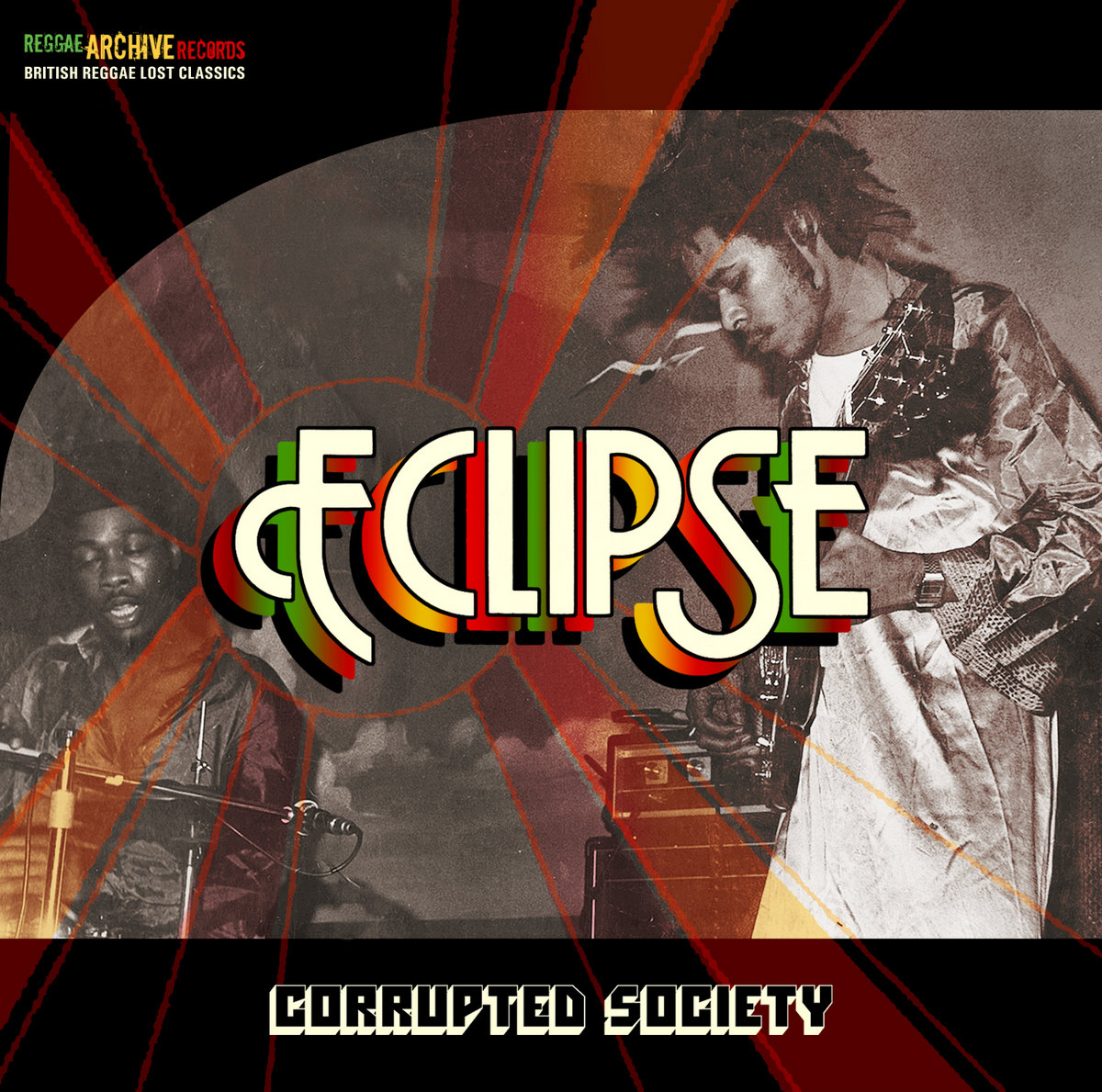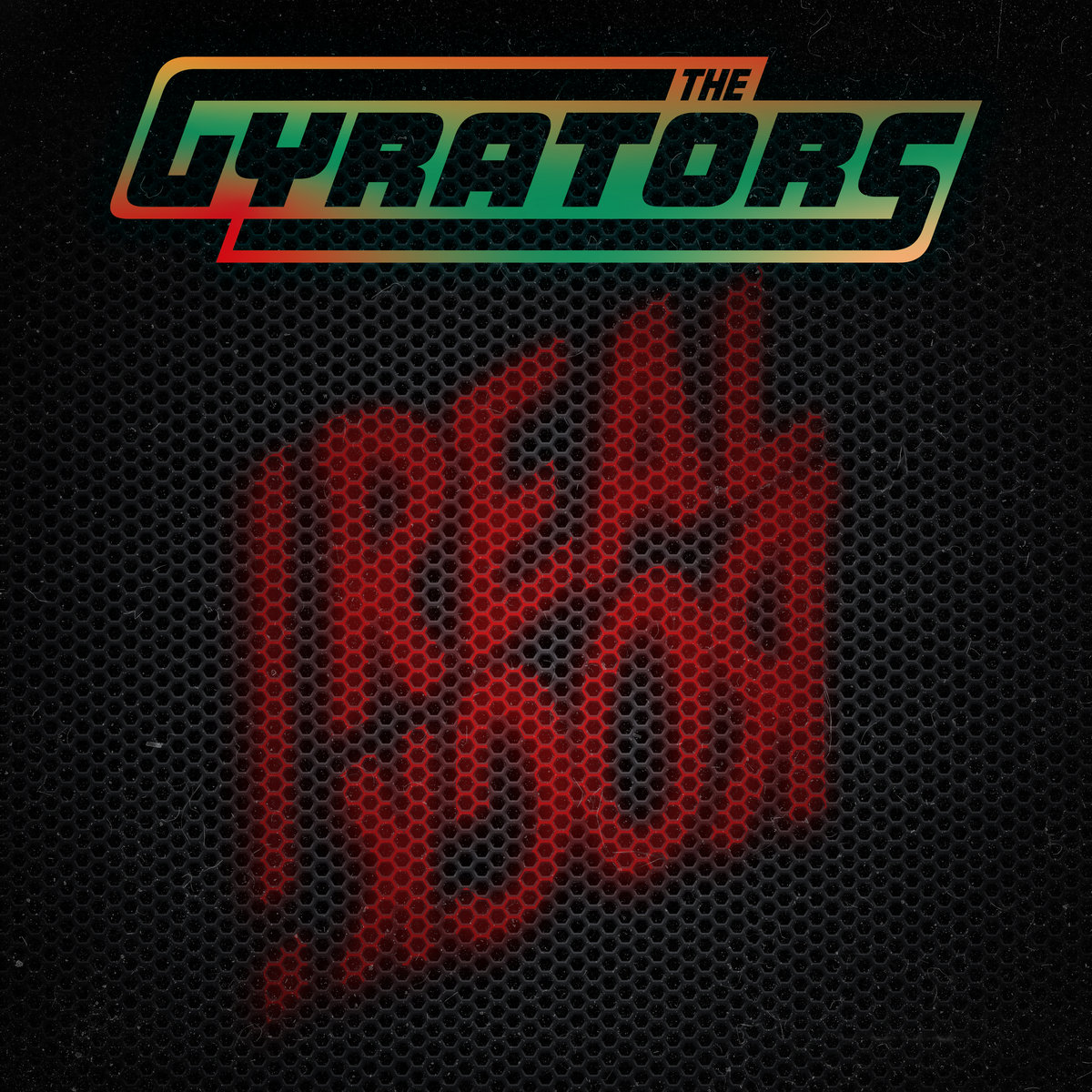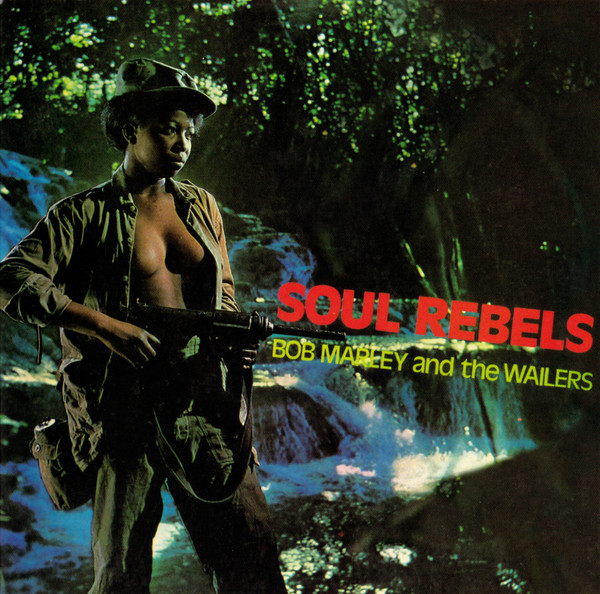“I’ll take anyone to task about UB40. They were as important as Bob Marley in getting reggae into the consciousness of British youth at that time. I’m proud to be their number one fan.” – Keith Allen
Hello all
This was my first reggae album, I brought in back in 1980-81, and it just blow my mind. At the time I was listening to the Two-Tone groups, The Specials, The Beat, Madness, which had an element of reggae, in the form of SKA, with a mix of punk. But Signing Off was different, it fits in so well with the Two-Tone groups, but it was Reggae without any of the punk/Rock of the Two-Tone bands, and I loved it, as a young teenager (13 or 14).
UB40 formed in December 1978 in Birmingham, England. The ethnic make-up of the band’s original line-up was diverse, with musicians of English, Welsh, Irish, Jamaican, Scottish and Yemeni parentage. A bit like my class, don’t think we had anyone from Yemeni, but we had Spanish, Portuguese, African, and West Indians, along with English and Irish.
The band members began as friends who knew each other from various schools across Birmingham, England. The name “UB40” was selected in reference to a form issued to people claiming unemployment benefits from the UK government’s Department of Employment. The designation UB40 stood for Unemployment Benefit, Form 40.
Guitarist Ali Campbell, together with the rhythm section of drummer Jimmy Brown and bassist Earl Falconer, began rehearsing charting reggae songs in addition to some of their own original compositions. They were soon joined by several of their friends, firstly percussionists Yomi Babayemi and Norman Hassan, and then saxophonist Brian Travers and keyboardist Jimmy Lynn. Robin Campbell, although initially reluctant to commit to forming a band with the others, was invited to join once again by his brother and bought a guitar with which to do so in December of that year. Once Robin had joined the others in their jamming sessions, the eight musicians formed a band, deciding on the name ‘UB40’ after a friend suggested it was an appropriate name given the unemployed status of all of the band members. Prior to this, Travers had worked as an electrical apprentice for NG Bailey; whilst Robin Campbell had been an apprentice toolmaker.
This lineup of the band lasted long enough to play their first show at the Hare & Hounds pub in Kings Heath in February 1979 and one other, before the band underwent its first lineup change in the form of Babyemi and Lynn leaving the band and Mickey Virtue joining in place of Lynn. A month later UB40’s classic lineup was rounded out with the inclusion of percussionist and vocalist Astro. Astro had previously been working for Duke Alloy’s sound system attending reggae dances in Birmingham. Before some of them could play their instruments, Ali Campbell and Brian Travers travelled around Birmingham promoting the band, putting up UB40 posters. Their sound was created and honed through many long jam sessions at various locations in Birmingham.
Saxophonist Brian Travers said, “We commandeered a cellar and started rehearsing every day, nine till five. Our first experiences of playing an instrument started together, and we’d humiliate each other over mistakes. But we were very serious about our music. It was a year before we played our first gig. It was in an upper room at the ‘Hare and Hounds’ in Kings Heath, Birmingham. We played the whole of Signing Off because they were the only songs we knew.
Towards the end of 1979, the band felt confident enough to start recording their songs and approached local musician Bob Lamb as he was the only person they knew with any recording experience. Lamb had been the drummer with the Steve Gibbons Band for much of the 1970s and was a well-known figure within the Birmingham music scene. He remembered that “‘King’ was the very first song they ever played to me, and it just blew my mind basically, to realise a bunch of kids could make a sound like that… it blew me away. And that was it for me, I was hooked, it was a bit like Elvis walks in or something, you know, it was one of those moments.”
However, as the band were unable to afford a proper recording studio, the album was recorded in Lamb’s own home at the time, a ground-floor flat in a house on Cambridge Road in Birmingham’s Moseley district that later became affectionately known as the “Home of the Hits”. Lamb would later use the money he earned from the album’s success to build a proper recording studio, Highbury Studio, in an old cricket bat factory in nearby Kings Heath, which remained under his ownership until his retirement in 2010 – during the 1980s and 90s he would go on to produce the early demos for Duran Duran and work on the debut albums by fellow Birmingham natives Ruby Turner, The Lilac Time and Ocean Colour Scene. However, in an interview to mark Signing Off’s 30th anniversary, Brian Travers recalled just how basic the recording facilities of the original Cambridge Road “studio” really were:
“Because we couldn’t afford a studio and he was the only guy we knew who knew how to record music, we did the album in his bedsit. I remember he had his bed on stilts. So underneath the bed was a sofa and a mixing desk. And so we recorded the album there on an eight-track machine, with the same 50p coin going through the electric meter continually because we’d booted the lock off it. And, with it being a bedsit and us being eight in the band, we’d record the saxophone in the kitchen—because there was a bit of resonance off the walls, a bit of reverb—before putting the machine effects on it. While the percussion—the tambourines, the congas, the drums—we’d do in the back yard. Which is why you can hear birds singing on some of the tracks! You know, because it was in the daytime we’d be shouting across the fences ‘Keep it DOWN! We’re RECORDING!'”
Producer Lamb described the somewhat relaxed recording process:
“We had a huge garden that was completely overgrown with tall grass. There were various encampments out in the long grass of UB40 posses, various bunches of people… They didn’t just turn up at the studio alone, they always brought maybe 20 people with them, of all walks of life. So whilst we were in the studio working there was this kind of garden party going on at the same time, so whoever wasn’t doing anything at the time was in the garden indulging in whatever, in the long grass in the hot summer. So the point is that everybody had a lot of fun making it, and you can hear it on the record. You can hear the summer… you can hear the birds singing.
UB40 first single a double A-side, “King”/”Food for Thought” was released on Graduate Records, a local independent label run by David Virr, and this is where I heard them first, “Food for Thought” was getting most of the airplay, but it was “King” that got me hooked, which was about the late Martin Luther King Jr., questioning the lost direction of the slain leader’s followers and the state of mourning of a nation after his death.
Its hard for me to pick tracks off this album as there are so many that I have live with for so long. But I will pick one of the 5 instrumentals, and the title track “Signing Off” to show back then the music that hit so strongly back then, and one of the main parts of that was Brian Travers flowing Saxophone, and the bass and drums.
“Burden Of Shame” recounted the misdeeds performed in the name of British Imperialism, it starts off with that smooth bass, and ends with that fast rhythm section. Van Morrison sued UB40 for the melody, and he won. It was an accidental coincidence and a chance in a million. I wonder if UB40 should now sue Massive Attack…..most of Blue Lines uses this bassline, and it pops up similarly on Mezzanine. As Ali Campbell points out, there are only 8 notes in the scale…….crossing over is bound to happen sometimes.
Two tracks were cover versions: an early Randy Newman composition “I Think It’s Going to Rain Today” and the blues classic “Strange Fruit” (made famous by Billie Holiday), two songs that dealt with compassion for fellow humans and racism respectively.
But it was “Strange Fruit”, which was on the 3 track 12” 45rpm, that came with the album, that really hit home, especially a few years later when I found out what the song was about. The song was originally recorded by Billie Holiday in 1939, written by Abel Meeropol and published in 1937. It protests the lynching of Black Americans, with lyrics that compare the victims to the fruit of trees. Such lynchings had reached a peak in the Southern United States at the turn of the 20th century, and the great majority of victims were black. The song has been called “a declaration of war” and “the beginning of the civil rights movement”.
Don’t know if you can tell, but this is a rather personal album, it’s one of the first albums I brought, and have lived with it, and played regularly the last 40 years. No matter what you think of UB40 and what came after this, this is there best album, and I feel a must-listen album. And if you are still with me this last one was regularly played in my bedroom, with my dad shouting up the stairs “ turn that crap down”, nearly 13 minutes of bliss.
“Madam Medusa” a vivid description of Margaret Thatcher’s rise to power depicted in a grotesque style, featuring some of the band’s most impassioned and bitter lyrics.
And remember, drum and bass make your wind up you waist!
Funny Comments from the web: Loved this song back in the day. Could not afford a Fred Perry back then , still cannot now. some things like good music never change 🙂
Fruitless Fact: UB40 caught their first break when Chrissie Hynde saw them at a pub and gave them an opportunity as a support act to her band, The Pretenders.
For the geeks: I have it on CD, a rather beaten up 1980 UK 1st pressing, which needs replacing.




Such a landmark album.